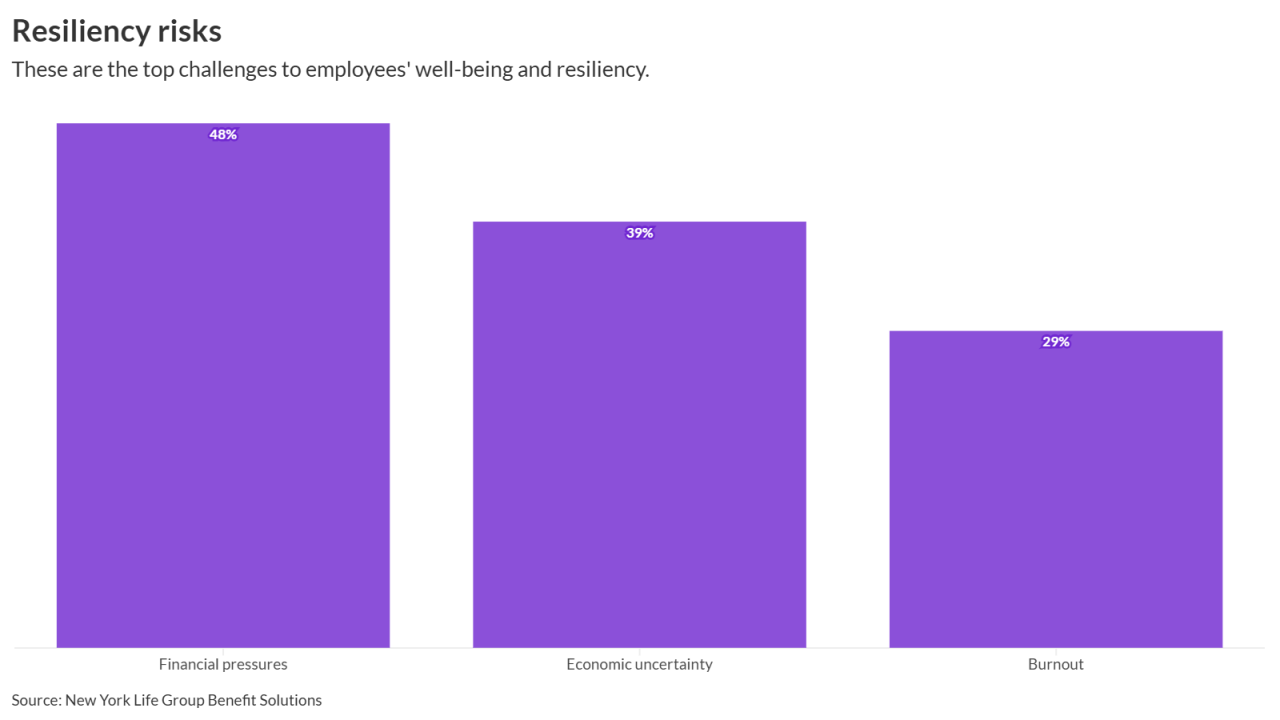Summer Fridays are likely over for the year, but will companies roll them out in 2025? Data from management software company Envoy reveals that the perk may just be a
Envoy found that just
But what does that mean for summer Fridays? Traditionally starting after Memorial Day and ending with Labor Day weekend, summer Fridays allowed employees to clock out at least a few hours early. However, the rise of remote work meant that employees could not only work from home but plan their week with shorter Fridays in mind — and not just for the summer.
Read more:
"Summer Fridays were once seen as a perk that allowed employees some flexibility during the summer months," says Jonathan Weindel, head of data analytics at Envoy. "This has just lost a lot of relevance today. And there's a lot more intentionality around what employees are doing when they're actually in the workplace, primarily Tuesdays through Thursdays."
Unsurprisingly, Mondays saw the second-least amount of traffic, with 16% of employees going into the office that day. Weindel questions whether this data points to the practicality of a four-day workweek. This isn't to say employees aren't genuinely working from home on Mondays and Fridays, but rather that employees are likely getting everything done without being in front of their desks 9-to-5 every day, explains Weindel. According to professional services firm KPMG, 30% of large U.S. companies are exploring a reduced workweek in 2024.
"[Envoy's] data could potentially be showing the precursor to the four-day workweek," says Weindel. "It just seems like a natural transition at some point. We know employees really value work-life balance."
Read more:
This doesn't necessarily mean employers should nix summer Fridays completely. Company leaders can still encourage remote workers to sign off early on Fridays or ensure in-office days don't land on Mondays and Fridays. Weindel advises employers to place flexibility at the center of their hybrid policies and not work against when employees naturally want to come to the office.
"It looks like people are booking meetings and collaboration time between Tuesday and Thursday because when people are in the office, they want it to be purposeful," he says. "It's going to be harder to work with people on Mondays and Fridays anyway."
Read more:
Weindel encourages employers to assess their hybrid and return-to-office policies, survey employees based on their own experience from the last year, and address the gaps in what the policy demands and how employees actually want to show up. He stresses that the desire for flexibility isn't going anywhere, and employers could hurt their attraction and retention efforts if they fight against the tide.
"In order to meet the interest of employees, companies need to adapt to evolving expectations," says Weindel. "This means offering flexible work arrangements. It means leaders are highlighting the strategic advantages of embracing flexibility, like improving employee satisfaction, enhancing productivity and making time together in the office really purposeful."






